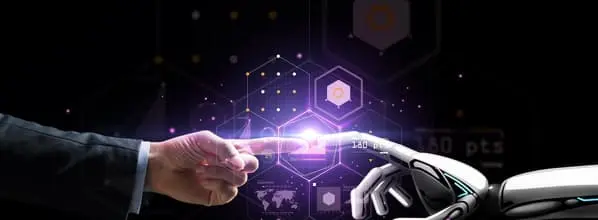Modern “smart” technologies have taken a firm place in our lives. Almost everyone has a supercomputer in their pocket, which our near–minded ancestors would have perceived as a miracle, but we consider it ordinary and necessary. New technologies are already penetrating everywhere, even in gambling and sports betting, you can check it on https://22bet.ug/toto/football.
However, the era is not far off when artificial intelligence will penetrate all spheres of human activity, and we will no longer be able to do without the help of AI.

Application of AI
Artificial intelligence is widely used and qualitatively changes reality in science, medicine, education, business, everyday life, defence, transport, etc. AI proved to be better than a human in three ways:
- It automates routine, monotonous, monotonous processes that are tedious for a person;
- Quickly processes huge amounts of information;
- The human factor is excluded: fatigue, illness, emotions, and related errors.
As a result, AI applications are constantly expanding. Artificial intelligence is already doing an excellent job with some tasks in the following areas:
Healthcare.
In this area, such qualities of artificial intelligence as the ability to process data and conclusions based on information analysis are valuable. This makes AI an unsurpassed diagnostician, doctor’s assistant, and super-registrar. In addition to diagnostics, such systems can calculate a person’s predisposition to certain diseases, predict the course of chronic diseases, and also recognize diseases at very early stages. Such “doctors” already exist – based on the Watson supercomputer from IBM, DeepMind Health from Google, and the Face2Gene application project from FDNA for determining genetic diseases from photos in development. In Russia, a decision support system based on AI is being developed – the “Third Opinion”, works in oncology Botkin. AI.
AI is an assistant not only to doctors but also to sick and healthy people who monitor their health. There are already on-sale devices available for home use – testers, counters, and meters of various indicators of the body.
Some can communicate with the patient by voice, surveying the state of health, and then either giving recommendations for its correction or sending the ward to the doctor. For example, the Ada and Your applications.MD – available for download on the Internet.
Education.
The field of education has two tasks in development for the foreseeable future – adaptive learning and proctoring. Artificial intelligence is designed to solve the problem of assimilation of material by people with varying degrees of academic performance and learning ability, selecting educational material and the way it is presented for the personal abilities of each student.
Proctoring is the control of exam takers. The robot monitors the process, taking into account many factors that the webcam may not fix because the ingenuity of dexterous students can deceive the technique. However, in education and its quality, a human-machine is unlikely to ever completely replace it. A lot depends on the personality of the teacher himself – it is better to learn from those teachers that students like as people.
Agriculture and Industry
AI quality such as workflow automation is in demand here. So far, the matter is limited to the execution of conveyor operations, but by 2023 LG, for example, is going to open a factory where artificial intelligence will be entrusted with almost everything: from the purchase of consumables to product quality control, shipment, plan execution control, equipment control and much more.
Presumably, a person in such production will not be needed.
In agriculture, robots have already been instructed to identify weeds in the lush thickets of the harvest, remove them, detect plant diseases, identify pests, and also economically introduce pesticides and fertilizers in a size not exceeding the required one.
In addition, the AI is tasked with monitoring the main parameters of the environment needed for the harvest – soil moisture, air condition, and temperature regime.
Traffic
In transportation and logistics, AI-based devices are valuable for their ability to process huge amounts of data.
From external devices (for example, traffic lights), traffic-affecting data on traffic density, weather conditions, the number and points of accidents, etc. are collected. Artificial intelligence analyzes the data and, depending on the results regulates traffic, which avoids traffic jams and accidents.
The AI is also able to come to the rescue – to call a tow truck, or an ambulance if necessary. According to statistics, 90% of accidents occur due to human error. Probably, the introduction of artificial intelligence will save many lives.
Soon artificial intelligence will massively realize itself in one more direction – the replacement of human-controlled cars with autonomous ones. Autonomous cars are driverless cars. And in some countries, there is already robotic parking – a person leaves the car, and the robot parks it.
Household Use of AI
“Smart” houses will not surprise anyone. AI-based life support systems for homes are already able to turn on lights and alarms. Soon the house will communicate with the owner as a full–fledged family member serving clothes, waking up, ordering menus, doing cleaning, doing laundry, giving recommendations on dry cleaning, sanitation, climate maintenance, etc.
The task is to rid a person of household routine, which few people like. Want an online percentage calculator? visit www.calculerpourcentage.fr
In addition, the smart home is an indispensable assistant in terms of saving energy resources and consumables. A valet, a laundress, a cleaner, a security guard, a cook, a courier, a butler, and a housekeeper – artificial intelligence can combine all these functions within one system.








Leave a Comment